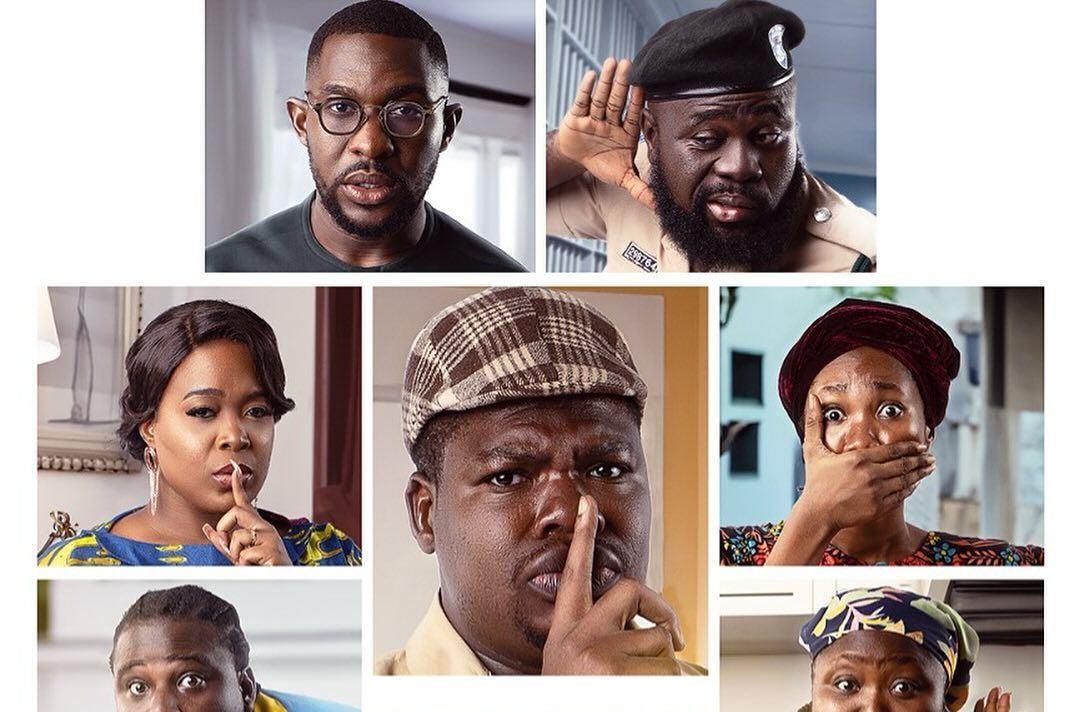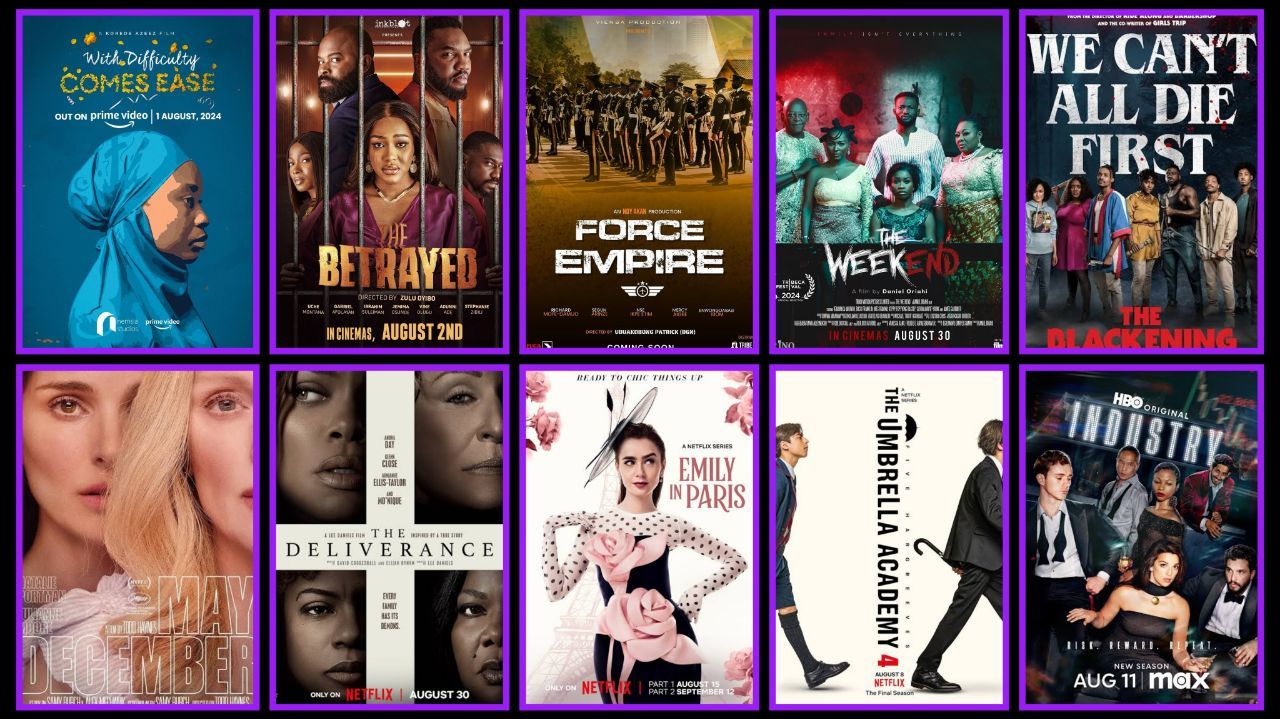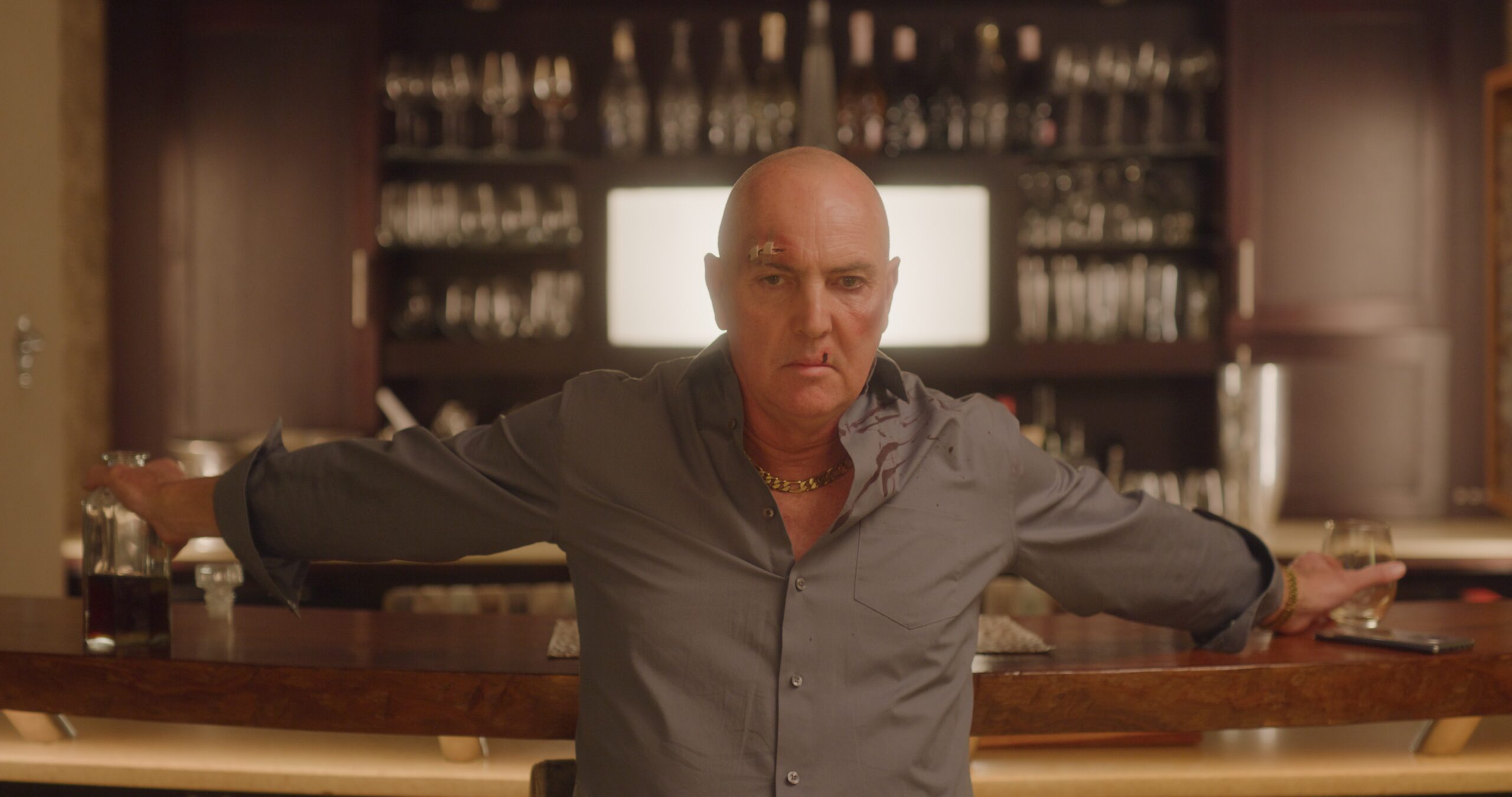I had one line of thought when I came out of Small Talk: what is the Nigerian comedy film? What is its nature? What has it evolved from, and where is it going?
The reason these questions were bouncing around in my head was simple: I had just sat through almost 2 hours of a comedy feature film, and unfortunately, an overwhelming part of it had not been funny. Naturally, I began to wonder why. Was I not the target demographic? Were my standards too high? Or was the film simply comically inert?
It turns out there are rarely easy answers to most things in this life. Unlike that time my wife asked me to choose between her and a billion dollars. (Hint: I chose the billion dollars.)*
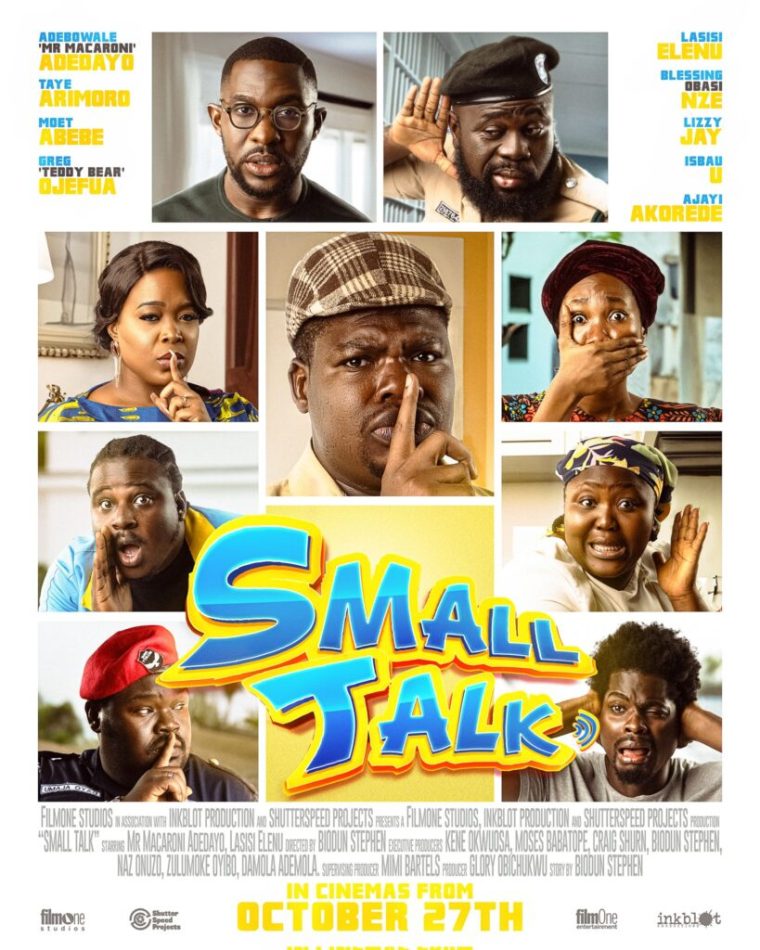
Small Talk is a mystery comedy about how Baba Dee (played by Adebowale “Mr Macaroni” Adedayo), a chauffeur, puts his boss (Taye Arimoro) in trouble by being a blabbermouth and telling everyone who cares to listen about how wealthy the man is and how well he treats him as an employee. The film begins with the arrival of his boss from the United Kingdom together with his wife (Moet Abebe). For some reason, they come into the country with 20,000 pounds in cash. That same night, they are robbed by two masked gunmen. Baba Dee is not around, and his boss is wounded during the incident– one of his arms is broken. Yet, he refuses to involve the police at first because he doesn’t want anyone to know he’s in the country. If only he knew how many people Baba Dee already told about his journey.
They seek the services of Officer Okoh (Lasisi Elenu), a detective with an inconsistent African-American accent, to carry out an investigation. This leads the film into the second act, which is filled with scene after unfunny scene of Okoh questioning everyone from the cook (an Igbo woman), to the gateman (a Hausa man), to a filling station attendant (an Edo lady), to Baba Dee’s wife (Lizzy Jay). The humour here is supposed to be mined from the interplay of these eccentric characters, but the scenes pull no surprises. There is one instance bound to get good laughs from viewers though, and that is where Officer Okoh reveals to Lizzy Jay’s character, who has been insulting him in Yoruba the whole time, that he also speaks the language. This moment aims to subvert the audience’s expectations, and it works well. Up to ten characters (many of whom are played by popular skitmakers) are brought in for interrogation, however, the schtick wears thin fast.
If Act 2 is supposed to be where the filmmakers deliver on the promise of the premise. Here, it quickly becomes obvious that instead of taking a plunge, the film can only manage to dip its toes in both genres. The mystery (concerning the identity of the thieves) is rarely intriguing, as the stakes (i.e what will happen if the stolen money is not recovered) are either nonexistent or not properly communicated. Also, the way the culprit is revealed is so straightforward, it renders a good portion of the plot gratuitous; the comedy is only entertaining in flashes, and the scenes drag. The film plays more like a farce (works that rely on highly exaggerated, improbable, and downright absurd situations), but even those are usually written with a great deal of care and attention to detail.
Watching the trailer for Small Talk, it is obvious the film is at least, on some level, self-aware about its characters and tone. There, officer Okoh is labelled the “fake accent inspector,” and Baba Dee, “the oversabi driver,” among other tongue-in-cheek descriptions. This is all very well. Being self-referential is well within the purview of comedy, from stand-up acts to sitcoms and even cinema. Therefore, the approach the filmmakers take with Small Talk is not strange. But these are all bones– there is hardly any meat to speak of. The story is simple enough; it just required proper development.
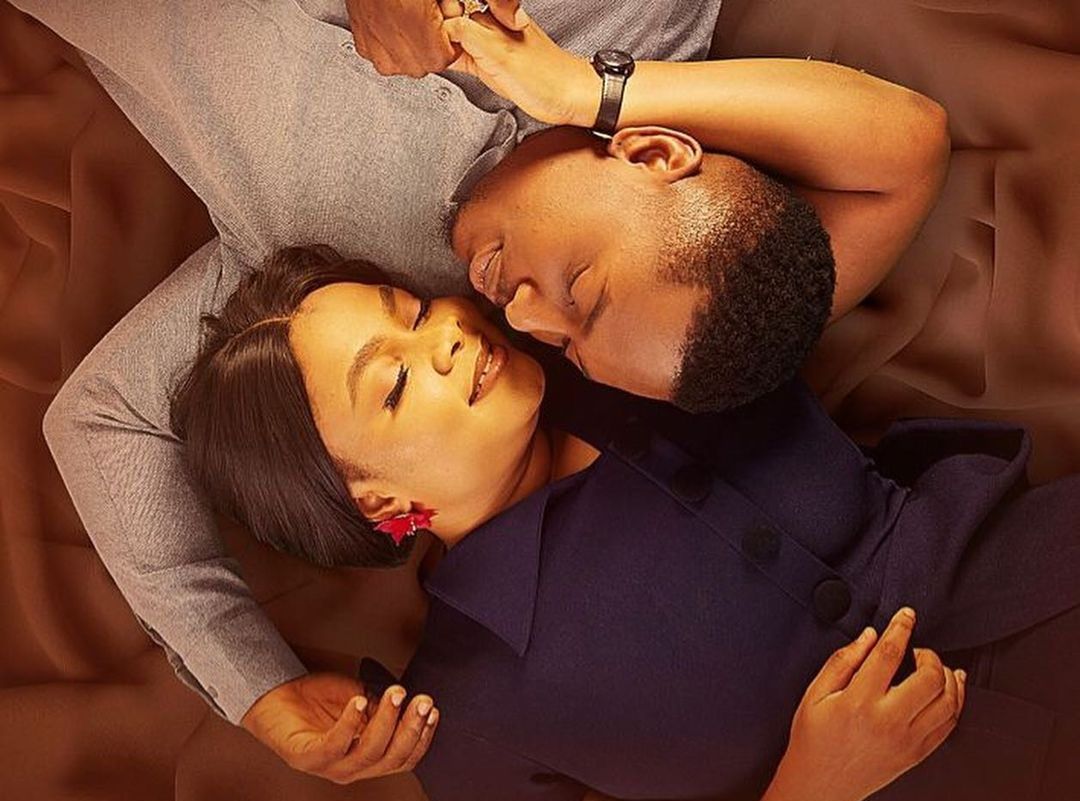 ‘Big Love’ Review: Family Drama Complicates Hesitant Romantic Plot
‘Big Love’ Review: Family Drama Complicates Hesitant Romantic Plot
 ‘Merry Men 3 Nemesis’ Review: Comic Crime Thriller Franchise Becomes More Pointless
‘Merry Men 3 Nemesis’ Review: Comic Crime Thriller Franchise Becomes More Pointless
Small Talk is directed by Biodun Stephen (Sista, Breaded Life), and is a collaboration between her outfit, ShutterSpeed Projects, FilmOne Studios, and Inkblot Productions. This film is also Mr. Macaroni’s leading role debut and he tries, especially in the emotional scenes, to reveal some depth in the character. The problem is that there isn’t much complexity there to begin with. Adedayo, who is a trained thespian, has featured in several other Nollywood projects, such as Ayinla and Aníkúlápó, where he showcases his acting chops, as far as drama and comedy are concerned. It seems Small Talk fails to take advantage of the former.
I won’t spoil the film but it ends on a very emotional note, with tears all around, a major swerve from the previously established tone. What this means is that the pathos isn’t earned and I was left sitting there wondering whether I should feel bad for the character or not. Again, the stakes aren’t well-defined; the film could have ended any other way (probably with an alien invasion, or an angry T-Rex bursting onto the scene) and my thoughts about it would remain the same.
Comedy is subjective, yes, because it is predicated on factors like age, location, background, etc. For instance, I consider Scrubs (2001 – 2010) to be one of the greatest sitcoms of all time. But the show is chock-full of pop culture references, many of them too obscure to get a laugh out of a good chunk of the population. Still, the show is funny. Because some aspect of comedy is also universal. There’s a reason the films of Charles Chaplin or Rowan Atkinson (Mr. Bean), performed without dialogue, (and in Chaplin’s case, about a century ago) inspire laughter the world over. There’s a reason even as Nigerians, many of us laugh when we watch comedy from Bollywood, South Korea, Hong Kong (one name: Jackie Chan), and of course, Hollywood.
In light of that, I think the final issue with Small Talk is with its execution. It’s very possible for a joke to be good (on a technical level, with a brilliant set-up and punchline), and yet fail to elicit any laughs from an audience, especially when it is told by a comedian who messes up the delivery. Following this analogy, with Small Talk, not only is the delivery wonky, but the joke itself feels tired and cliché.
I ask again, what is the Nigerian comedy film, and why does it seem like while we succeed with online sketches and skits, a good number of our feature comedies suffer from a severe incoherence between story and comic gags?
And what is the way forward?
Share your thoughts in the comments section or on our social media accounts.
Keep track of upcoming films and TV shows on your Google calendar.
Side Musings
- *This is a complete fabrication. None of this happened. This critic is not yet married. And if he was, he would make a different choice.
- Film critic, Mark Kermode, has a theory called the six-laugh test. Basically, a good comedy should make you laugh out loud a minimum of six times. No, Small Talk did not pass this test.

